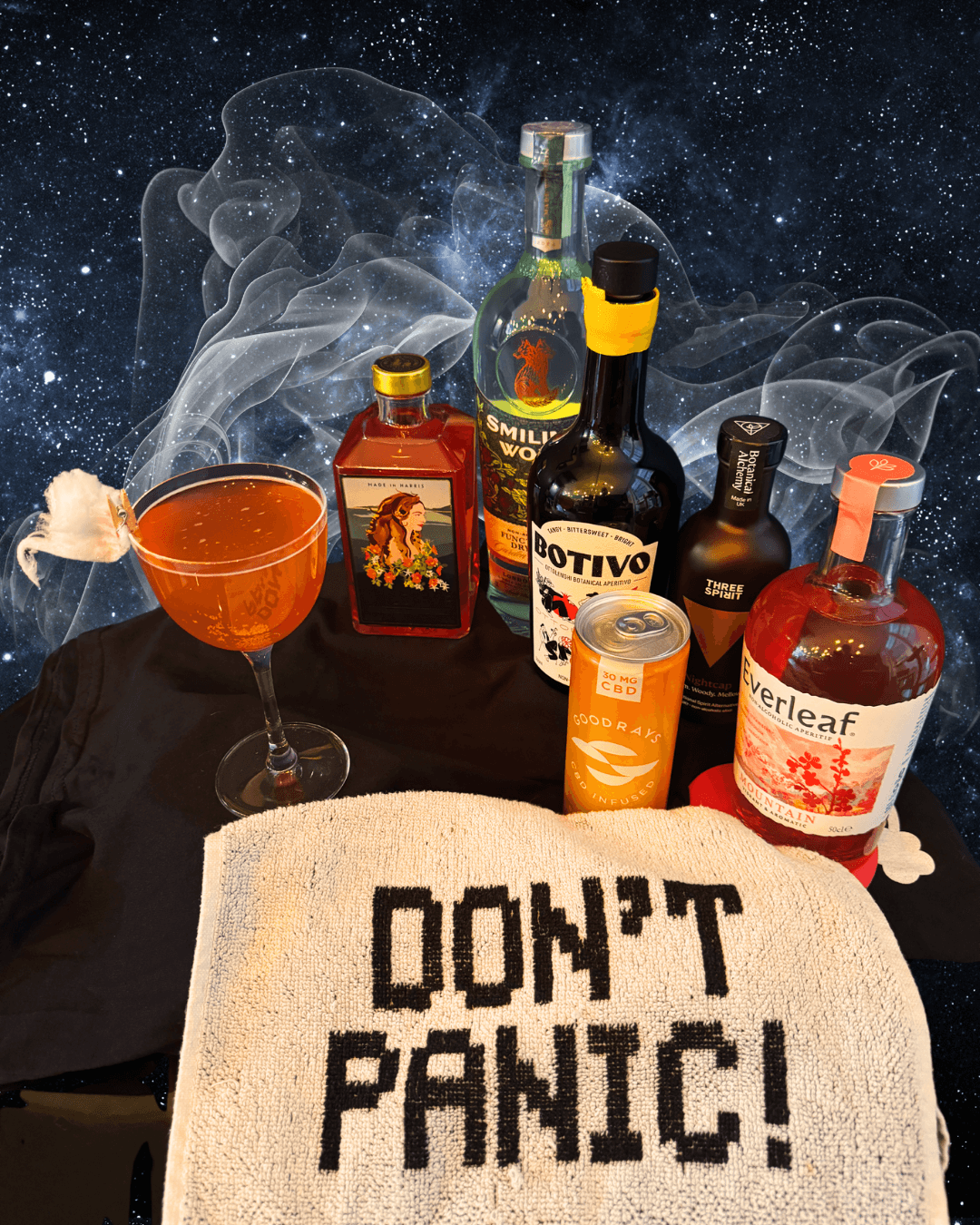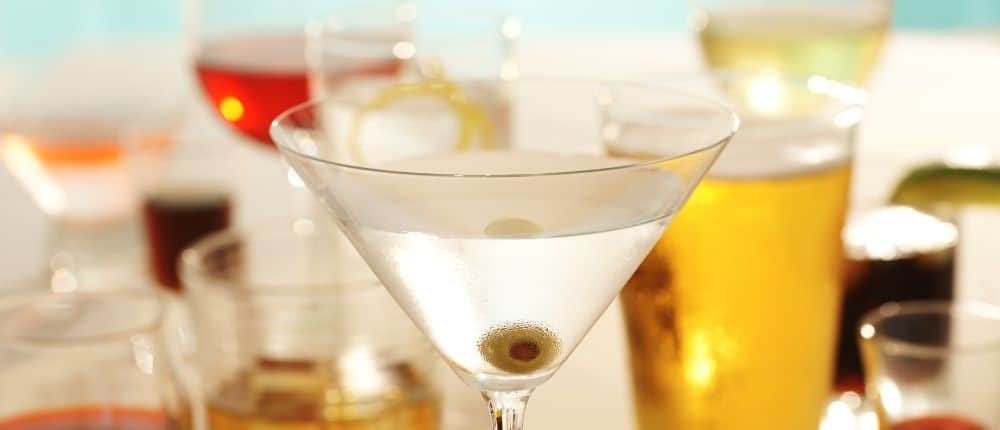
This website uses cookies to improve your experience. We'll assume you're ok with this, but you can opt-out if you wish. Read More
The Next Round: What happens after you change your drinking?


I know alcohol is alcohol, but why do certain types of alcohol affect you differently? Wine makes me chatty and laugh, but gin sedates me. Just wondering. Tracey

Good question, Tracey. And you’re absolutely right that at one level, alcohol is alcohol. But it turns out, the effect of alcohol in practice is pretty complicated.
In this article, let’s explore the basics of how alcohol affects you, the way in which you respond to different types of alcohol, and how noticing the effect of specific drinks can help you begin to change your drinking.
At a chemical level, all alcoholic drinks are near identical. Aside from the very strongest spirits, the vast majority of alcoholic drinks are mostly water, with varying amounts of ethanol (what we commonly refer to as alcohol) and an array of colours and flavours. The ethanol has the same impact on your body, whatever it comes mixed with. So, in theory, the same volume of ethanol should always have the same effect, even it is delivered in a different alcoholic drink.
However, alcohol’s effects are complex. Unlike more straightforward drugs, alcohol is a depressant, a stimulant and a mood changer. Even as it relaxes you, alcohol will work on your nervous system, releasing happy hormones while simultaneously increasing your stress levels. Alcohol is a heady brew, and its effects can be hard to predict or control.
Unlike more straightforward drugs, alcohol is a depressant, a stimulant and a mood changer.
Put it this way. Ever wondered why you fall asleep while your friend is always up to a fight? It’s not just that you might drink different amounts; you’ll both fall down dead drunk eventually. But alcohol’s complex biochemical effects means that it can amplify whatever emotions you bring to the party. Sadness, happiness, excitement, anger, jealousy and joy can all come to the surface when you’ve been drinking.
So it’s not just that different types of drink might affect you differently. Every individual drink can have dramatically different effects.
It’s not just that alcohol is complicated. Your behavioural response to alcohol is complicated too.
One of the most intriguing fields of research into behaviour with alcohol concerns the idea of expectancy. Expectancy is a psychological term for a predictable relationship between an external stimulus and our response to it. At its simplest, your expectation of what will happen can shape your experience of what happens. So what you expect to happen when you drink can change what actually happens in practice.
You also have the ability to compensate for being drunk. Remember your teenage ability to temporarily sober up and have a straight-faced conversation when someone asked you if you’d been drinking? This demonstrates your ability to control some of alcohol’s effects, even if you are already drunk.
The places you drink, the people you drink with and when you drink affect your experience of different types of alcohol.
And studies comparing alcohol and placebos have shown that you can feel drunk even if you drink something alcohol-free, as long as you believe you are drinking something alcoholic.
Interesting as they are, these lab-based studies cannot account for the complex social context around drinking alcohol. This alters your experience too. The places you drink, the people you drink with and when you drink affect your experience of different types of alcohol. Research has shown that where you are can even change your tolerance for alcohol.
In Club Soda’s courses, we introduce you to a simple tool that helps you pay attention to what’s going on when you drink different types of alcohol. Using simple questions, you quickly build up a picture of how different types of alcohol, on different occasions, can affect you in different ways. All of your observations can help you decide if you need to change. And if you are committed to changing things, you can then begin to make concrete plans.
Be curious about what you expect to happen, and observe what’s going on in and around you as you drink.
As a result of what you notice, you might decide that you need to stop drinking completely or maybe take an extended break from all types of alcohol. But if you are considering moderation, it’s useful to notice how you respond to different drinks. These observations may not be true for you, but here are some examples of how people respond to different types of alcohol:
Your relationship with various types of alcohol can be deeply personal and specific. So start paying attention to what happens when you consume different types of alcohol. Be curious about what you expect to happen, and observe what’s going on in and around you as you drink. Keep paying attention. And take action if you need to.
You can dramatically reduce your alcohol intake by making category switches, for example, by drinking alcohol-free beer instead of alcoholic versions. You can also decide that certain types of drinks, like spirit shots, will always be off your personal menu. Just by noticing your response to different types of alcohol, you can begin to drink more mindfully and gain more control.
Cheers

Dru Jaeger is one of Club Soda’s co-founders and leads courses, workshops and regular groups for people who want to change their drinking
This website uses cookies to improve your experience. We'll assume you're ok with this, but you can opt-out if you wish. Read More
| Name | Domain | Purpose | Expiry | Type |
|---|---|---|---|---|
| wpl_user_preference | joinclubsoda.com | WP GDPR Cookie Consent Preferences. | 1 year | HTTP |
| PHPSESSID | www.tickettailor.com | PHP generic session cookie. | 55 years | HTTP |
| AWSALB | www.tickettailor.com | Amazon Web Services Load Balancer cookie. | 7 days | HTTP |
| YSC | youtube.com | YouTube session cookie. | 55 years | HTTP |
| Name | Domain | Purpose | Expiry | Type |
|---|---|---|---|---|
| VISITOR_INFO1_LIVE | youtube.com | YouTube cookie. | 6 months | HTTP |
| Name | Domain | Purpose | Expiry | Type |
|---|---|---|---|---|
| _ga | joinclubsoda.com | Google Universal Analytics long-time unique user tracking identifier. | 2 years | HTTP |
| sbjs_migrations | joinclubsoda.com | Sourcebuster tracking cookie | 55 years | HTTP |
| sbjs_current_add | joinclubsoda.com | Sourcebuster tracking cookie | 55 years | HTTP |
| sbjs_first_add | joinclubsoda.com | Sourcebuster tracking cookie | 55 years | HTTP |
| sbjs_current | joinclubsoda.com | Sourcebuster tracking cookie | 55 years | HTTP |
| sbjs_first | joinclubsoda.com | Sourcebuster tracking cookie | 55 years | HTTP |
| sbjs_udata | joinclubsoda.com | Sourcebuster tracking cookie | 55 years | HTTP |
| sbjs_session | joinclubsoda.com | SourceBuster Tracking session | Session | HTTP |
| Name | Domain | Purpose | Expiry | Type |
|---|---|---|---|---|
| mailchimp_landing_site | joinclubsoda.com | Mailchimp functional cookie | 28 days | HTTP |
| __cf_bm | tickettailor.com | Generic CloudFlare functional cookie. | Session | HTTP |
| NID | google.com | Google unique id for preferences. | 6 months | HTTP |
| Name | Domain | Purpose | Expiry | Type |
|---|---|---|---|---|
| _ga_10XZMT03ZM | joinclubsoda.com | --- | 2 years | --- |
| AWSALBCORS | www.tickettailor.com | --- | 7 days | --- |
| cf_clearance | tickettailor.com | --- | 1 year | --- |
| VISITOR_PRIVACY_METADATA | youtube.com | --- | 6 months | --- |
Join Club Soda for 10% off your first order of drinks for UK delivery. Plus get our latest news and special offers for members to choose better drinks, change your drinking and connect with others.
If you get an error message with this form, you can also sign up at eepurl.com/dl5hPn